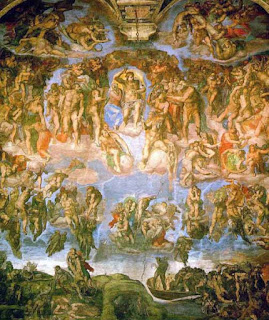
The book of Psalms is really five books [1-41, 42-72, 73-89, 90-106, and 107-150]. There are only 9 psalms in the whole Psalter than begin and end with the unique Hebrew word “Hallelujah” [106, 113, 117, 135, 146, 147, 148, 149, and 150; often called “Hallel Psalms”]. All of these psalms are in book 5 of the Psalter, except Psalm 106; it is the last psalm in book 4, awaiting the unhindered praise of book 5.
Furthermore, the last 5 psalms in book 5 are all Hallel Psalms. It seems to me that this joyous and triumphant praise is saved for last because of the sense of finality that it carries. Derek Kidner says that “the psalms are a miniature of our story as a whole, which will end in unbroken blessing and delight.” But further still, the revelation of Jesus to John on
Nowhere in the NT do we find the word “Hallelujah” until we arrive at Rev 19. The great Babylon of Rev 18 has fallen. The table at the marriage supper of the Lamb is set for its guests. Also, the choir of voices that echo this distinct praise includes: a great multitude in 19.1 and 19.6; the 24 elders and the 4 living creatures in 19.4; and the bond-servants of God in 19.5. Some even see Rev 19.1-6 as the last of 5 doxological scenes in John’s apocalypse [4.5-11, 5.11-14, 7.9-17, 15.2-8, and 19.1-6]. Even if this is stretching it, there is no doubt that the Biblical shape of Hallelujah directly entails eschatological hope and consummative jubilee.




No comments:
Post a Comment